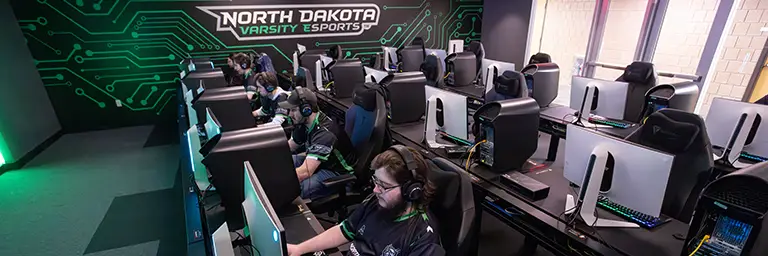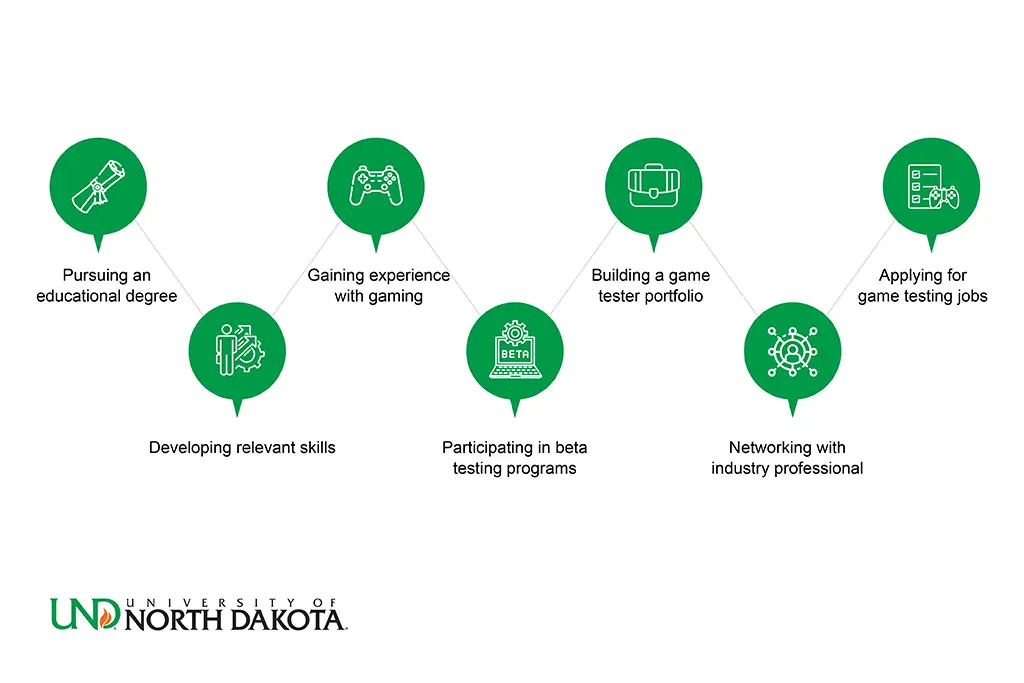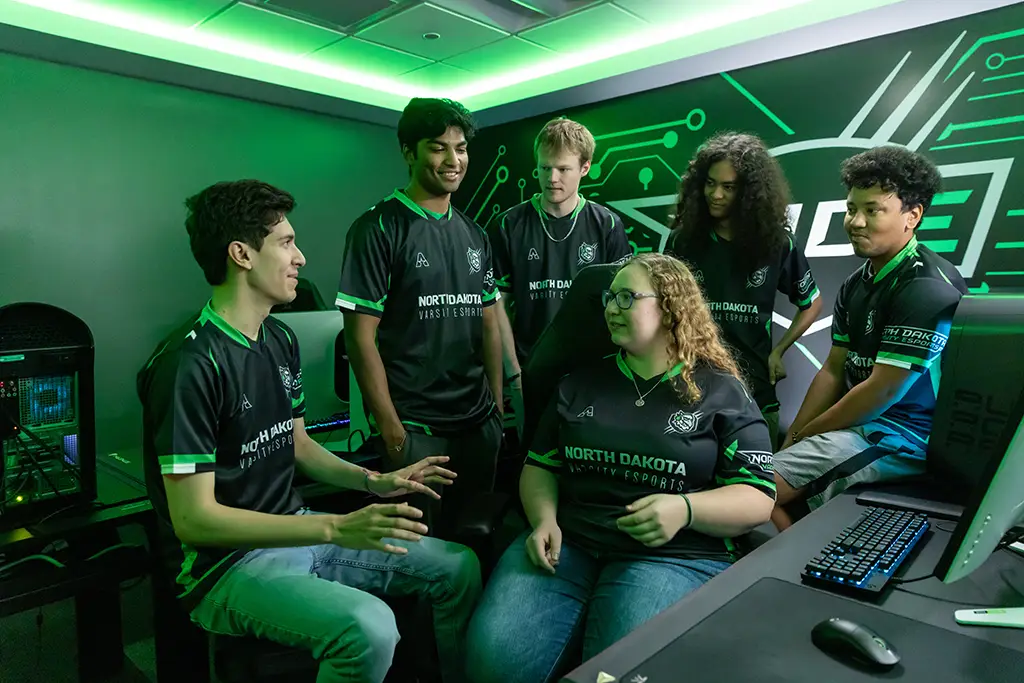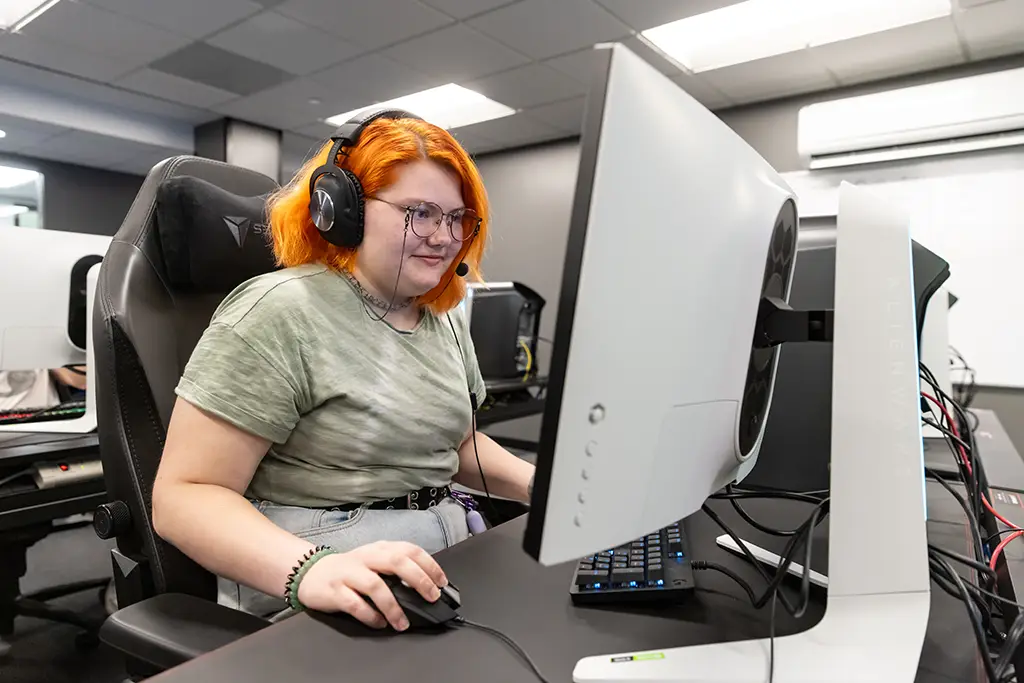
Love Gaming? Here’s How to Become a Game Tester Now!
To become a game tester, you should build a combination of gaming experience, technical skills, and knowledge of game testing processes while networking and creating a strong portfolio to showcase your abilities.
Request Information
For anyone who loves gaming, having a professional career where your main task is related to playing games all day undoubtedly sounds like a dream come true. However, game testing is not as simple as just playing for fun—it's an important part of the development process that requires precision, patience, and technical expertise.
For anyone who enjoys problem-solving and is passionate about gaming, becoming a game tester can be an excellent choice, as it turns their hobby into a fulfilling profession. If you're interested in knowing more about the role and how to become a game tester, the safest route to take is through a blend of education, experience, and a network with industry professionals.
Main Steps to Become a Game Tester
When it comes to a career as a game tester, the requirements aren't as strict or rigid as in many other fields, meaning the exact steps to becoming one can vary greatly from person to person. However, to give yourself the best chance of success, it's important to cover all bases. Being well-versed in the theoretical aspects of game testing, gaining hands-on experience, and developing the skills that show employers you know what you're doing is key to standing out.

Pursuing an Educational Degree
Becoming a game tester doesn't always require a formal degree. However, having one can significantly improve a tester's ability to perform their job.
Testers focus on what is wrong with the game and programmers are looking to make things right.Game Testing All in OneCharles P. Schultz, Robert Denton Bryant, and Tim Langdell
A tester can do her job better by gaining insights into how the code is designed and produced, and then exploiting that in the way the game tests are written and executed. This means that understanding how a game is built from a technical perspective helps testers find more complex bugs and communicate more effectively with the development team. Therefore, a degree in computer science or software engineering, for instance, can provide aspiring testers with the technical foundation necessary to better understand game mechanics, coding, and debugging processes.
An esports degree can also be useful for game testers as it equips them with a strong understanding of gaming culture, game mechanics, and player behavior. Such insights are valuable when evaluating how games function and appeal to players.
At the University of North Dakota, the bachelor's in esports program offers an excellent opportunity for students interested in pursuing various gaming-related careers. As Eric Link, UND provost and vice president for academic affairs, explains, "The new major in esports at UND is the first of its kind in North Dakota," and the program is "innovative, challenging, and at the cutting edge of new developments in academic programming across the country." The interdisciplinary nature of the program equips students with a broad understanding of gaming, making it useful for those pursuing roles in game testing.
Travis Isbell, UND's former esports director, also highlights the practical, experience-based nature of the program: "In my opinion, UND has been a place that believes in experience being the best teacher. That's what excites me most about this new undergraduate esports program. UND sits at a pivotal place to train the next generation of esports professionals that will make a difference for years to come." This focus on hands-on learning aligns closely with the demands of game testing, where practical experience and real-world applications of skills are essential for success.
Developing Relevant Skills
In order to ensure the quality and functionality of video games before they reach players, game testers need technical expertise and soft skills.
Through formal degrees, aspiring game testers begin to master the key technical skills that the field requires, which include:
- Knowledge of various gaming platforms, including consoles, mobile devices, and PCs, as games can behave differently on each
- Ability to use bug-tracking tools in order to document and manage issues effectively
- Understanding of testing methodologies such as regression testing, test case execution, exploratory testing, and more
- Understanding of core gameplay elements like user experience and level progression
While technical skills are critical, soft skills are equally important, if not more so for some, when it comes to hiring.
Hard skills are easier to learn than soft skills, or convincing someone to change their approach to work.Modern Game TestingNikolina Finska
It is important that during job interviews, we don't test only for QA (Quality Assessment or Quality Assurance) skills but also ask insightful questions about preferred ways of working, communication styles, and other values that are important in our organization. Some such key soft skills to focus on include:
- Communication
- Teamwork
- Problem-solving
- Adaptability
Gaining Experience with Gaming
In order to become a game tester, you must first embrace being a gamer. Though it may seem obvious, spending time playing a variety of games is a crucial way to build your understanding of game mechanics and gameplay flow, as well as just user experience in general. However, you must approach games with a more analytical mindset than casual gamers.
To prepare for a game testing role in particular, use this time to try games across multiple platforms. This will familiarize you with the differences in how games function on various platforms and help you identify the technical challenges unique to each.
In addition to the gaming platform, it's useful to also diversify the types of games you play. First-person shooters, puzzle games, role-playing games (RPGs), and simulation games have distinct mechanics and gameplay elements. Experimenting with different genres will provide you with valuable initial insights into how different games are structured and what potential bugs or issues might arise.
Throughout all this, always try to play critically: pay attention to details like game balance, level progression, and how well the controls respond. Taking mental (or even written) notes on what works and what doesn't can be great practice for when you actually start testing professionally.
You can start by exploring popular and critically acclaimed titles in each genre and then progress to more niche titles. Consider joining online communities or forums where you can discuss gameplay elements and issues with other gamers. The more time you spend immersed in gaming, the better you'll get at noticing the small details that truly matter for gamers.

Participating in Beta Testing Programs
Once you've familiarized yourself with the general practice of gaming, it's time to focus your experience on testing. You can do so by participating in beta testing programs.
Unlike simply playing games, beta testing allows you to get a closer look at the development process and actively contribute to improving a game before its official release. So, essentially, it enables you to briefly step into the shoes of a professional tester. This shift from being a consumer to becoming a contributor in game development will help refine your testing skills and further prepare you for a professional career in game testing.
There are two main types of beta testing programs: open and closed beta. In an open beta, the game is available to a broad audience, often without any special requirements beyond signing up with an email address. This type of testing is widely accessible, making it an excellent opportunity for aspiring game testers to gain valuable experience.
On the other hand, closed betas are more exclusive and involve a select group of players chosen based on specific criteria, such as geographic location, gaming preferences, or familiarity with the game's intellectual property (IP). Participating in a closed beta can be competitive, especially if we're talking about highly anticipated game releases, but it offers a more focused and in-depth testing experience.
To find beta testing opportunities, regularly visit game developers' websites, gaming forums, or platforms like Steam, PlayStation Network, and Xbox Live, where beta tests are frequently announced. You can also follow game studios and developers on social media to stay updated on upcoming beta programs.
Building a Game Tester Portfolio
Like in many other professions, a well-crafted portfolio is a game tester's ticket to showcasing their abilities, achievements, and potential to future employers. A portfolio serves as proof that you can identify issues, think critically, and provide clear, actionable feedback from which game developers can benefit. It is a chance to stand out in a competitive field by demonstrating what you know but, more importantly, how well you can apply that knowledge to real-world scenarios.
To build a portfolio that will impress, make sure to:
- Provide clear and detailed examples of bugs you've found in beta tests or personal projects. Include reproduction steps, expected vs. actual results, and the severity of the issue.
- Note the types of testing you've conducted, whether it's functional testing, regression testing, exploratory testing, or stress testing.
- Showcase your versatility by including examples from different platforms and genres.
- Provide insights into how you would improve gameplay elements, user experience, or level design based on your testing.
Networking with Industry Professionals
Networking is often just as important as having the right skills. Building relationships with industry professionals can provide opportunities that may not be accessible through traditional job boards. As Nikolina Finska rightfully points out, "Lots of jobs in the gaming industry are not advertised, and building your own network of industry contacts can help you."
Aspiring game testers can start building their network by attending gaming conferences and expos, where professionals gather to share knowledge and showcase their projects. Events like GDC (Game Developers Conference) or local meetups organized by IGDA (International Game Developers Association) offer fantastic opportunities to meet industry professionals, developers, and other testers. If in-person events aren't accessible, many of these conferences offer online versions, which can still help you connect with others in the field.
Applying for Game Testing Jobs
Once you've gone through all these steps, you're ready to take the final one: applying for game testing jobs.
It's natural to feel a bit of uncertainty or doubt, but remember, all the steps you've taken up to this point have prepared you for this. You've obtained a relevant degree, built practical skills, learned how to test games, and developed relationships that can support you.
Don't wait until you feel like you're 100% ready or perfectly qualified—many game testers get their start by applying for entry-level positions that allow them to grow into the role.

The Role of a Game Tester
Game testers are responsible for identifying issues that could impact gameplay in order to improve the game and provide a positive experience for players.
Their main responsibilities include:
- Identifying bugs and glitches
- Providing detailed feedback
- Collaborating with development teams
- Running test cases
- Retesting after fixes
- Testing across platforms
- Tracking issues through bug-tracking tools
Types of Game Testing
Different types of game testing are used to ensure that a game meets the set quality standards, from functionality to performance. Some of the most common types of game testing are:
- Functional testing: used to check if the game's core features and mechanics work as intended, without bugs or crashes.
- Compliance testing: used to verify that the game adheres to the platform holder's guidelines, such as Xbox, PlayStation, or mobile app stores.
- Localization testing: used to evaluate the game in different languages and regions to ensure that all translations, cultural references, and localized content are accurate.
- Regression testing: used to retest previously fixed bugs to ensure that they haven't resurfaced and that new updates haven't caused additional issues.
- Acceptance testing: used to confirm whether the game meets the developer's or client's criteria and is ready for release.
- Stress testing/load testing: used to assess how stable the game is under pressure by simulating high traffic or heavy user loads.
- Playtesting: used to test the game from a player's perspective to assess gameplay, enjoyment, and overall experience.
Why Consider a Career as a Game Tester?
A career as a game tester is ideal for all those who are passionate about gaming. It offers them the chance to contribute to the creation of high-quality games while also gaining valuable insights into the industry. This way, it can open doors to future opportunities in game development, quality assurance, and game design.
With a median annual wage of $101,800 for software quality assurance analysts and testers and a 17% job growth outlook, there's strong potential for career advancement. Additionally, the simple joy of knowing that your work helps improve games for the entire gaming community makes this career even more rewarding.
Conclusion
Every game you test, bug you report, and connection you make will get you closer to your long-term career goals. The experience you gain will make you more qualified for bigger roles as time goes on. The important thing is to do what you love and constantly try to improve yourself and the games you test.
So take that leap-join UND, develop your knowledge and skills in gaming, and enjoy a career of perfecting virtual worlds and removing glitches.
FAQs
If you pursue formal education, gain experience through beta testing, and focus on building a strong portfolio, it could take a few years to get fully prepared. However, the timeline can be shorter or longer depending on individual circumstances, like prior experience or opportunities that arise.
Technically, yes, you can become a game tester without prior experience, especially if you're applying for entry-level positions. However, employers generally prefer candidates with some experience, as they can better contribute to the development process and provide more effective feedback on game performance.